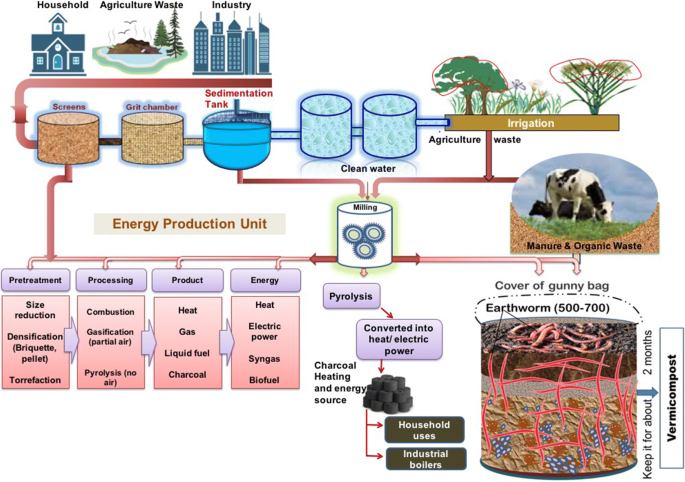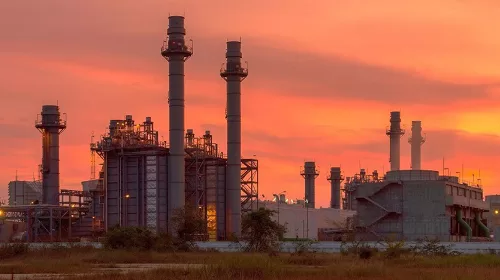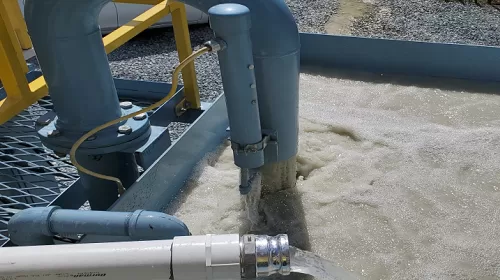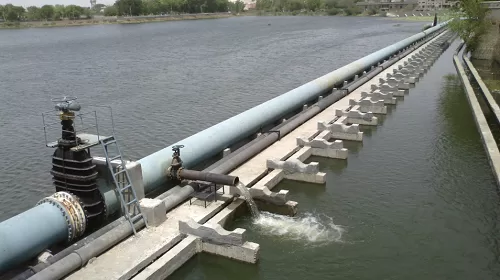Lalit Mohan Sharma, Principal Scientist, S M Sehgal Foundation
Aparajeeta, Assistant Program Lead, S M Sehgal Foundation
Yashi Gautam, Assistant Program Lead, S M Sehgal Foundation
Sumit Kumar, Field Assistant, S M Sehgal Foundation
Ensuring access to safe drinking water is crucial for enhancing living standards and extending life expectancy by minimizing the prevalence of waterborne diseases. Approximately 2 billion people worldwide currently consume microbiologically contaminated water (https://factly.in/data-what-is-the-status-of-water-borne-diseases-in-india/). Annually, approximately 37.7 million individuals in India suffer from waterborne diseases, with an alarming estimate of 1.5 million children succumbing to diarrhea alone, and a consequential loss of 73 million working days due to waterborne illnesses (UNICEF. Clean drinking water ensuring survival and improved outcomes across all outcomes for every child. 2019). While microbiological contamination is the largest public health threat, chemical contamination can be a major health concern in some cases. Water can be chemically contaminated through natural causes (arsenic, fluoride) or human activity (nitrate, heavy metals, pesticides). According to the Indian Council of Medical Research’s “India: Health of the Nation’s States” report, the Empowered Action Group States of Bihar, Chhattisgarh, Jharkhand, Madhya Pradesh, Rajasthan, Uttarakhand, Uttar Pradesh, Odisha, and Assam bear a notably high burden of water-related diseases (https://www.who.int/india/news/feature-stories/detail/tap-water-at-home-lowers-disease-saves-time-and-labour).
In this context, the narrative from the rural households of Vaishali district, Bihar, offers a spectrum of the broader water quality challenges faced by the communities. Chandrakala Devi’s family, consisting of 15 members in Gangajal, Raja Pakar block, mirrors the struggles encountered due to untreated water consumption. Her son, Nitish Kumar, faced recurring stomach pain before the adoption of water filter. The subsequent implementation of the Jalkalp Bio-Sand Filter has initiated positive changes, presenting a promising solution to the enduring issue of poor water quality. Through detailed case studies mentioned below, we delve into the transformative impact of accessible water quality solutions, offering cleaner and safer water consumption experiences for rural Bihar.
Meet Ajay Paswan, a hardworking daily-waged laborer from the village of Lakhnapur Lal in Vaishali district, Bihar. Ajay and his family of 10 have experienced a remarkable improvement in their health and well-being by making a simple yet impactful change – switching to affordable Matikalp ceramic pot water filters.
Ajay used to face health issues of indigestion like gastric and constipation, and his family’s overall well-being was affected. Anili Devi, his wife, says that the family now prefers using filtered water. The children also developed a preference for Matikalp-filtered water.
Ajay shares that earlier they used to consume water directly from the hand pump. Indigestion and skin issues like itching were a usual feature and required medication. Despite purchasing water at Rs. 20/day, their health issues persisted until they discovered the presence of iron and biological contamination in their water source in a community mobilized meeting by staff from the S M Sehgal Foundation. He also got to know about the MatiKalp water filters as a solution in the same meeting. He further shares that initially he was not very convinced but the switch to Matikalp filters not only resolved their health concerns but also eliminated the need to purchase water daily.
After adopting Matikalp filters, Ajay and his family experienced a significant positive shift in their health. Gas and constipation issues were reduced, and the family’s overall well-being improved. Anili Devi mentions that with improved health conditions all the family members are able to do much better whatever they are doing, when guests visit, she always offers Matikalp-filtered water, and the guests express delight and inquire more about the filter.
The Paswan family’s journey highlights the transformative impact of Matikalp water filters on their health and lifestyle. From overcoming health issues to winning the approval of guests, the Matikalp filter has become an integral part of their lives, symbolizing a positive change in their lives. Ajay and Anili’s testimonies stand as a testament to the power of a simple yet effective solution in improving the quality of life in rural communities.
Meet Sunaina Devi, a resident of Lakhnapur Lal village in Vaishali district, Bihar, living with her family of eight. For the past two years, Sunaina and her family have been enjoying the benefits of the Matikalp ceramic pot water filter, both for drinking and cooking purposes.
Sunaina highlights the positive influence of water filtered by Matikalp on her family’s well-being, recalling the days when consuming untreated water resulted in stomach issues and discomfort even nausea for everyone. With the adoption of Matikalp filters in the area, the incidence of gastric and stomach ailments has significantly reduced. This is resulting in better health, saving in terms of expenditure of medicines and no wage losses due to frequent diseases.
Jay Kumar Paswan, Sunaina’s husband, states the financial advantages of Matikalp filters. He asserts that the family’s overall health has improved, leading to a significant reduction in medical expenses almost Rs 1000 to 1200 per month. The proactive approach of consuming filtered water has proven to be a cost-effective solution, saving money that would have otherwise been spent on medications. According to Jay he has recovered the cost of filter within a through savings on medicines.
Jay and Sunaina Devi’s narrative serves as a testament to the influence of Matikalp water filters, not only enhancing health but also contributing to significant financial savings. The family’s transition from unfiltered to Matikalp-filtered water has not only addressed health concerns but has also become a strategic investment in their well-being and financial stability. Their journey from turmoil to tranquility exemplifies the positive impact of a simple yet powerful solution in rural India.
Neelam Devi, a resident of Khoksha Kalyan village in Vaishali district, Bihar, shares her family’s experience after adopting Matikalp. With a family of four, Neelam narrates their journey of overcoming health challenges and improving overall well-being. According to Neelam, after attending the community meeting conducted by the S M Sehgal Foundation made her aware about the iron and microbial contamination in water and MatiKalp water filter a potential solution. Thereafter, the adoption of the MatiKalp water filter has brought relief from issues like acidity, constipation, and stomach pain that affected them when consuming water direct from hand pumps, and kept them in a constant state of illness.
Neelam highlights the issue of iron contamination in their drinking water source affecting the taste of water and making it unfit to use. Even the color of rice cooked with this water was yellowish. With Matikalp filters, the water tastes better, encouraged the children to drink more. Before adopting Matikalp filters, Neelam’s family faced serious health challenges, including frequent diarrhea, typhoid and jaundice. Which is gone since they started consuming filtered water.
When visiting her relatives who still consume untreated water, she encourages them to adopt MatiKalp. She talks high for the habit of drinking only filtered water, stating that it has become an integral part of their lifestyle. She further adds that cooking with Matikalp- water has improved the food quality and accelerates the cooking process, especially for lentils and rice, which used to take longer before.
Neelam Devi’s testimony showcases the remarkable transformation in her family’s health and lifestyle since adopting Matikalp water filters. The switch from unfiltered to Matikalp-filtered water has not only addressed health concerns but has also become an essential aspect of their daily routine, bringing about positive changes. Their journey exemplifies the impact of a simple yet powerful solution in enhancing health and well-being in rural communities.
Dilip Shah, a permanent resident of Kalyanpur village, Bidupur Block, Vaishali district, shares the remarkable change his family has undergone in the past six years since adopting the Jalkalp Biosand Filter for their daily water needs. Dilip expresses how the use of filtered water has brought significant relief from gas and constipation issues. The light taste of the filtered water has also led to an increased desire to drink more, promoting better hydration and overall well-being.
Dilip’s wife, Muni Devi, highlights the challenges they faced when using water from a hand pump for cooking, specifically mentioning the prolonged cooking time of rice and lentils. With the use of filtered water rice now appears cleaner, and the cooking process is more efficient. The improved taste in their meals is a bonus. The absence of unpleasant odors in filtered water has made it more appealing to children. In the past, the undesirable smell of unfiltered water made it challenging to encourage the children to drink an adequate amount.
Dilip Shah’s experience showcases the comprehensive positive impact of Jalkalp Biosand Filter on various aspects of rural living. From health improvements to time and effort savings, the shift from unfiltered to filtered water has not only addressed challenges but has also enhanced the overall quality of life and family economy via saving on health related expenditures for the Shah family in rural India.
Poonam Devi, residing in Kalyanpur village, Vaishali district, shares a compelling story of health improvement for herself and her family through the adoption of the Jalkalp Biosand Filter. With a family of four, she narrates the positive changes that have unfolded over the past six years.
Six years ago, Poonam and her husband, Kummu Baitha, faced continued stomach-related issues. They experienced reduced appetite and a constant feeling of nausea, leading to frequent visits to the doctor. The turning point in Poonam’s life came when they started using Jalkalp Bio-Sand Filter. Since then, their indigestion and stomach issues have reduced, and they now enjoy improved appetite, easy digestion, and more active lifestyle.
In addition to the health benefits, Poonam highlights the financial relief they have experienced. The reduction in doctor visits and medical expenses has contributed to significant savings, providing economic comfort for the family.
Poonam Devi’s journey exemplifies the impact of the JalKalp Bio-Sand Filter on health and well-being. The shift from untreated water to filtered water has not only resolved health issues but has also brought financial relief, underscoring the holistic benefits of adopting household water treatment solutions in rural households.
Chandrakala Devi, a resident of Gangajal in the Raja Pakar block of Vaishali district, Bihar, shares insights into the impact of improved water quality on her family’s health. With a family of 15 members, Chandrakala reflects on the changes they observed after the adoption of JalKalp Biosand Filter.
Chandrakala mentions that before having water filter at her home, her son Nitish used to complain about frequent stomach pain. Upon using filtered water through the JalKalp Biosand Filter, Nitish’s stomach pain subsided within a few days. Chandrakala noted the positive change. When asked about the benefits experienced from drinking filtered water, she shares that while they might not feel a significant change, the family generally prefers the taste of water filtered through JalKalp. The improved taste has made a more enjoyable experience.
Chandrakala Devi’s experience provides valuable insights into the subtle yet impactful changes that can occur with the adoption of water filters. The change in Nitish’s stomach pain highlights the potential health benefits, and the preference for the taste of filtered water emphasizes the subjective improvements in the overall drinking water experience for the family.




